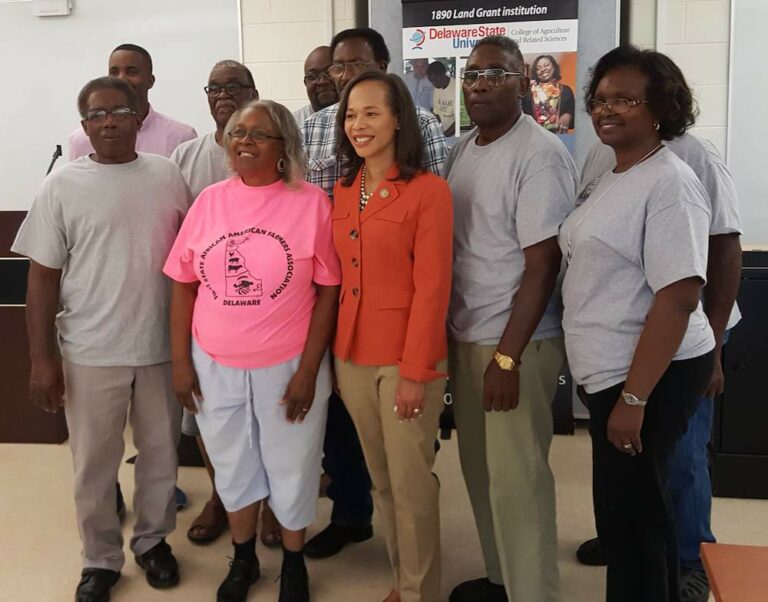
Research grant lays groundwork for formation of First State African American Farmers Association
When grants expire and projects come to a close, it’s not always easy to track their ongoing impacts, but an example from Delaware shows how one project can lead to another.
Andy Wetherill, an Extension Educator at Delaware State University (DSU) and a member of NERCRD’s Technical Advisory Committee, knew from his participation in a USDA-funded capacity-building grant that farmers who work together can take advantage of economies of scale and can benefit from learning together. Using an output from that project—a manual that guides Extension educators through the process of conducting network analyses of farmer groups—Wetherill helped a group of minority farmers in Delaware form a new network: The First State African American Farmers Association (FSAAFA).
Wetherill said his approach to helping the group coalesce was informed by the manual (pictured below). It was developed by the project partners including NERCRD, which played an integral role in convening the states involved in the capacity-building grant.
“The framework laid out in the manual helped me to figure out the best ways to both support the formation of the actual association, and to identify challenges that they face collectively and ways in which we can help them act as a group to become more profitable,” Wetherill said.
As a member of the team that developed the manual, Wetherill was involved with conducting a survey of minority farmers in three states. Nine of the Delaware farmers he surveyed are among FSAAFA’s members.
FSAAFA, which formed in 2018, has already achieved several milestones:
- The group holds regular meetings where members in attendance have learned about soil health, soil testing, farm management, animal and crop production, and federal- and state-funded programs and opportunities.
- They organized a meeting with State Representative Lisa Blunt Rochester
- They conducted a charitable event benefiting food-insecure DSU students.
- They applied for and received 501©(3) status, which will allow the organization to raise and accept funds under its new classification as a non-profit organization.
- The association is very interested in engaging youth in agriculture and have worked closely with DSU to provide mentorship and experiential learning to youths in urban and rural communities.
- In collaboration with DSU, launched the first annual Black Farmers Conference in 2023
